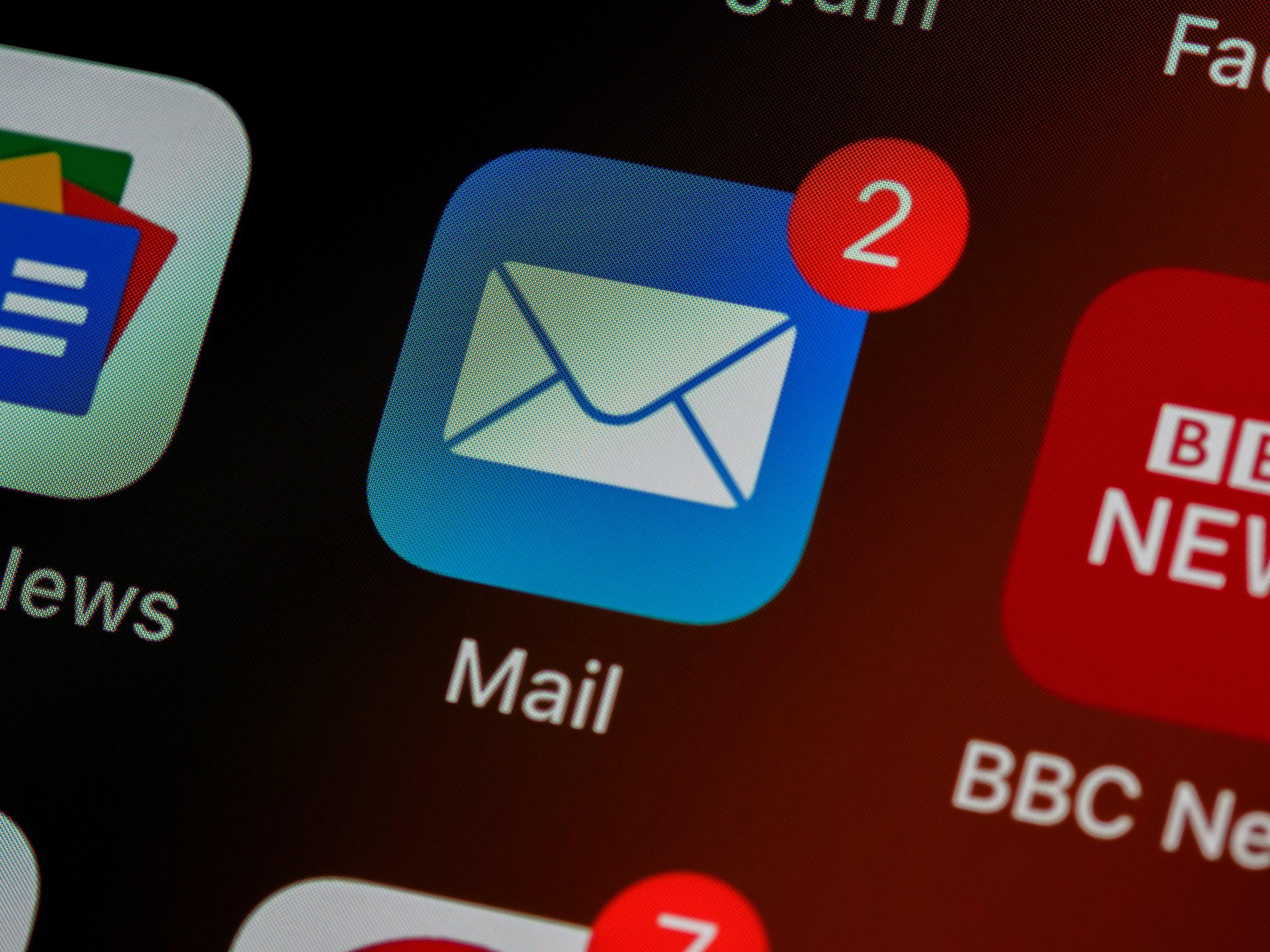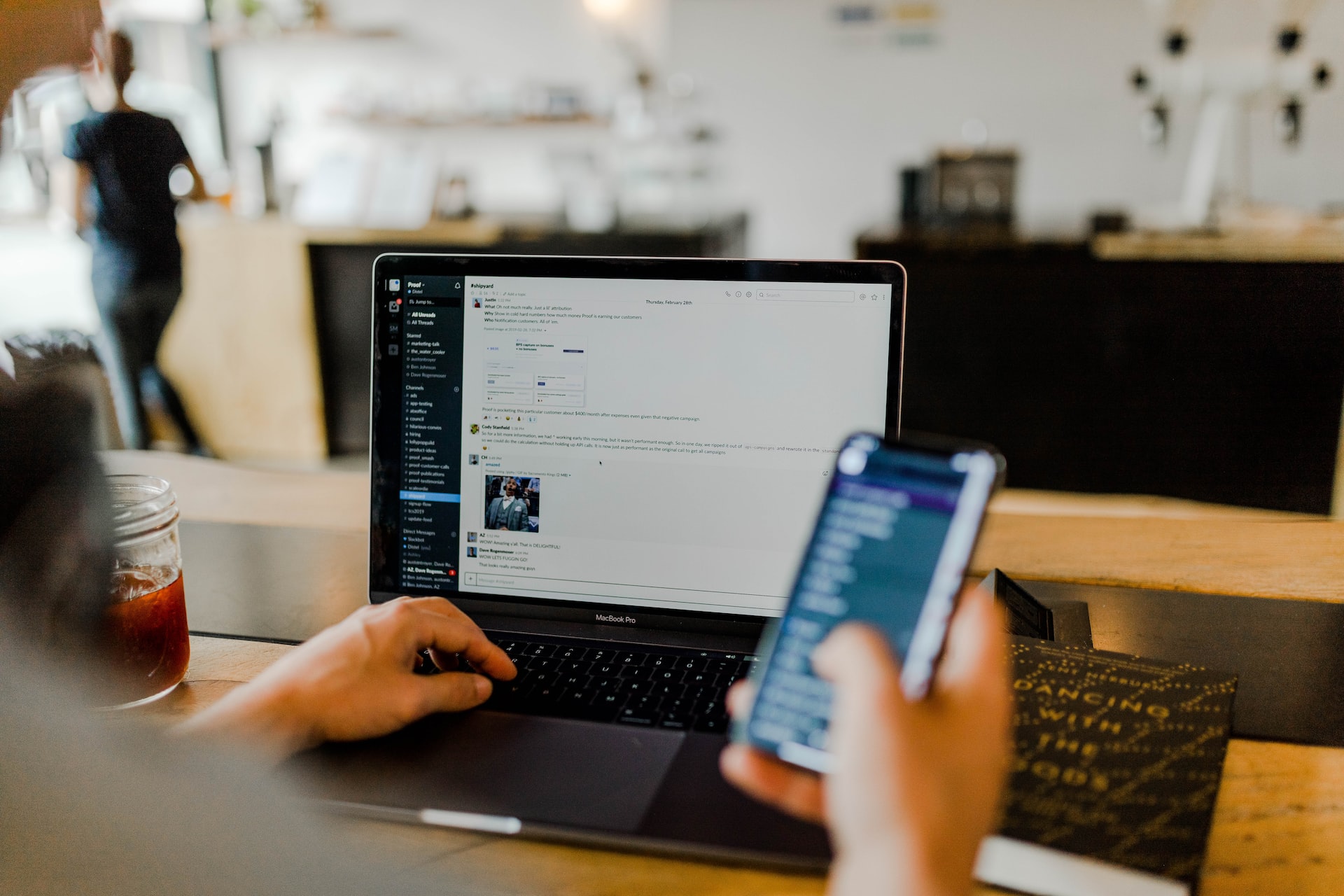Online, your email address is inextricably linked to your digital identity. It’s the hub for all of your corporate data, business communication, and passwords.
But what if you’ve seen some unexplained logins? Or if your trusted passwords don’t work? The bad news is your email might have been hacked, putting your business at risk.
In this article, we’ll discuss the 6 most common signs that your email has been hacked and 7 ways you can prevent it from happening again.

6 signs your email was hacked
#1. Your login details don’t work
Are you unable to log in to your email, even though you know the details are correct? This is a common first sign of email hacking.
But before you fall into a frenzied panic, double-check you’ve entered the details correctly. If you’re sure, begin the password recovery process.
If a perpetrator changed your recovery information, call your email provider’s customer service. They should be able to help you restore access to your email and protect it better.
#2. You’re getting emails with password reset emails
Another sign your email was hacked is receiving emails requesting a password reset.
Even worse is the notification that a password has been successfully changed, and you definitely didn’t change it.
Before proceeding with any actions, consider the following:
- DO NOT follow the links in these emails blindly, it could be a phishing attempt.
- Try and log in to the account from a different browser.
- If your password has changed, follow the official procedure to reverse it.
- If your details are correct, delete the phishing email and report it as spam.
- Either way, change your password immediately after.
#3. Your “Sent” folder is full of emails you didn’t write
Take a peek into the “Sent” folder on your email account. Are there any strange emails you don’t remember sending?
Having spam emails sent to your entire contact list from your email address is a huge red flag.
Commonly, scammers will use your email to send their spam and phishing attacks. Clever hackers, however, will also delete all traces of these emails.
At this point, contact your friends to warn them of any suspicious emails coming from your account and get in touch with support to resolve this issue.
#4. You get complaints from people on your contact list
Let’s say you don’t notice any odd emails in your “sent” folder, but your friends complain about spam emails you sent them. This is a sign that a hacker has access to your email account and is hiding their activity.
These emails often contain malicious links and other phishing attempts, which can lead to your friends and family getting malware on their devices.
Once again, notify your contacts and the cybersecurity officer at your workplace of the hack. This will keep them safe while you update your login and recovery data.
#5. Unusual logins from different locations, devices, and browsers
Many accounts will notify you via email when there’s been a new login on an unknown device or in an unusual location. These emails are an obvious sign that someone has infiltrated your account.
Did you access your emails at 2 AM in Moscow on a phone you don’t have? I guess you probably didn’t.
Such emails notify you that your account has been hacked, so you should immediately block the device and IP address from future access.
Also, double-check the email before clicking any links in it. It might be a well-planned phishing attempt.
You’ll be looking for signs like:
- The sender’s email and if it’s correctly spelled;
- If the logo of the sender matches with the official logo of the company that supposedly sent this email;
- If the text in the email is poorly written and contains grammatical errors;
- If the email contains a suspicious attachment.
If you notice any of these signs, don’t hesitate to contact customer support and ask them if there was an attempt to log into your email account for real.
Your email account is the gateway to your entire online account ecosystem. Through your email, you can change passwords and even request a One-Time Password (OTP) for quick access to your other accounts. For instance, for your social media pages.
Spammers often use the OTP feature of Facebook and other platforms to broadcast on personal accounts. Your email may have been breached if you notice:
- Spam posts;
- Advertisements;
- Unusual posts or messages;
- Changed password.
This likely means you need to change the passwords of all your accounts. Also, be sure to review your security and account recovery settings.

7 ways to prevent breaches in the future
The following are golden rules for email hack recovery and prevention.
#1. Create unique passwords for every account
You can’t expect your email to be safe if you use the same password for every account your own. Invest in a reliable password manager. It will assign random passwords to all your accounts and remember them, so you don’t have to.
#2. Employ Two-Factor Authentication (2FA)
It’s about time your cybersecurity joined the 21st century – enable 2FA to decrease the chances of a hack. Login will require another form of authentication, which makes life harder for any hacker trying to gain access.
#3. Browse with a Virtual Private Network (VPN)
You’ve probably heard of them by now, but what is a Virtual Private Network? VPNs protect your email accounts by disguising your data on malicious sites. So, while you browse, your IP address, browsing activity, and personal data are encrypted.
#4. Check if your email was involved in a breach
Whether you read a headline involving a big data breach or just want to be careful, there are ways to know if your email was stolen. Search engines like Have I Been Pwned scan data breaches to find out if your email address was ever involved.
#5. Review recovery information and other settings
As soon as you change your password after a hack, check your recovery, auto-forwarding, and auto-reply settings. Hackers often change these so they can regain access to your emails and account or send spam to your contacts.
#6. Run frequent antivirus scans
Regularly scan your devices for viruses, especially after a suspected breach. Hackers often install malware and other programs on victims’ computers. If caught early, you can avoid a lot of theft and software damage.
Now, it may seem like common sense to some, but work email addresses should remain exclusive to work-related accounts. If you accidentally hand your work email to a fraudulent source, your entire business could be at risk.
Conclusion
These days, losing access to your email is detrimental to online freelancers, corporate workers, and even casual users.
However, if you know the signs to look for and adopt targeted prevention methods, your email account will be far from the snooping eyes of hackers.

